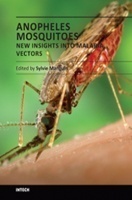Encyclopaedia of Ruminant Physiology: Digestion, Metabolism and Impact ofNutrition on Gene Expression, Immunology and Stress covers study of ruminant physiology, digestion, metabolism and impact of nutrition on gene expression, immunology and stress.
Ruminants are mammals that are able to acquire nutrients from plant-based food by fermenting it in a specialized stomach prior to digestion, principally through bacterial actions. Like other vertebrates, ruminant are unable to digest plant material directly, because they lack enzymes to break down cellulose in the cell walls. The volume “Physiology of Digestion in the Ruminants” is divided into ten chapters.
This book Useful for Physiology Student.
1. The use of Acute Phase Proteins as Biomarkers of Diseases in Cattle and Swine
2. Visceral Metabolism and Efficiency of Energy use by Ruminants
3. Ruminal Parameters Analyzed in Remaining Digestion Residue of Roughages in the in Vitro/Gas System
4. Effect of Sodium Lauryl Sulfate-Fumaric Acid Coupled Additionon the in Vitro Rumen Fermentation with Special Regard toMethanogenesis
5. A New Approach About the Digestion of Fibers by Ruminants
6. Methanogens: Methane Producers of the Rumen and Mitigation Strategies
7. Models for Estimating Feed Intake in Small Ruminants
8. Profile of Ingested Fatty Acids and in the Duodenal Digest of Steers Fed Different Diets
9. Removal of Excess Cellulose and Associated Polysaccharides in Fruit and Vegetable by-Products Implication for Use in Feed for Monogastric Farm Animals
10. Tandem MS and NMR: An Efficient Couple for the Characterization of Saponins
Citations, Index


















